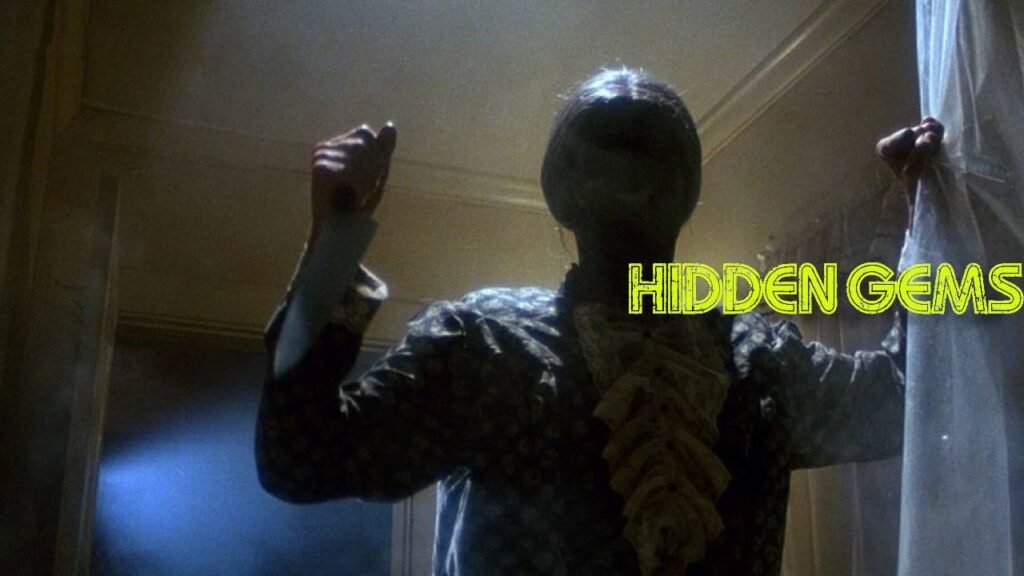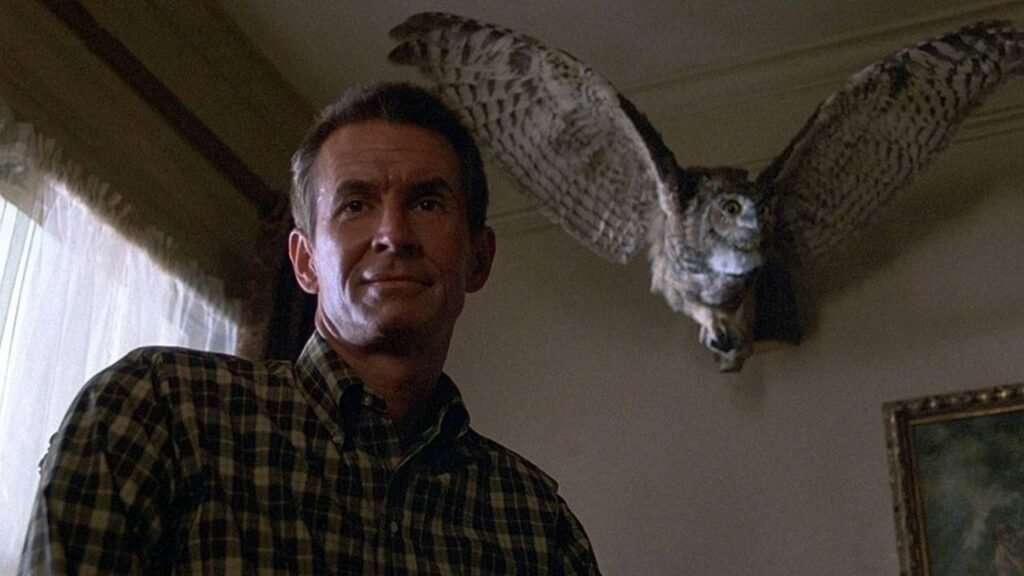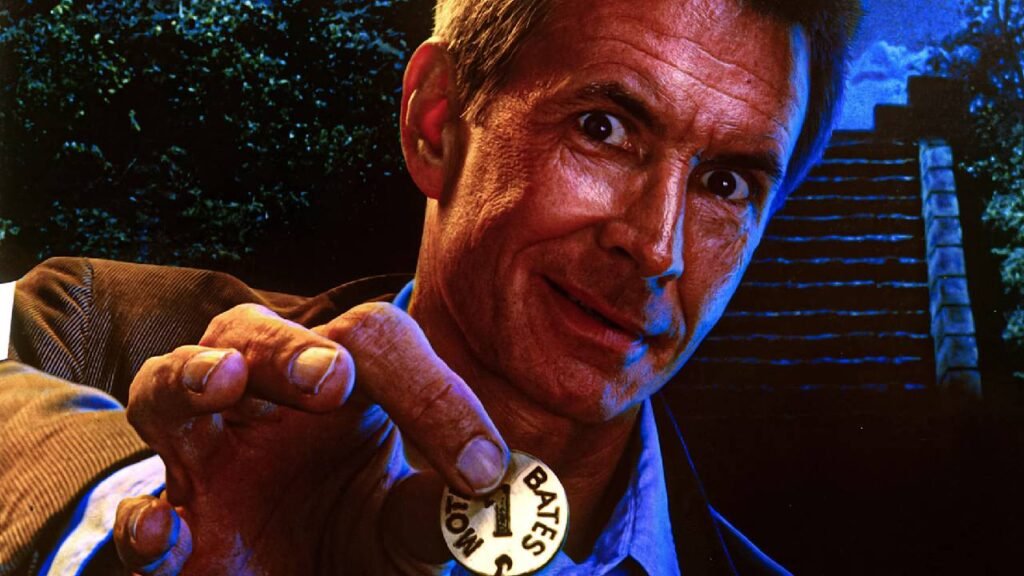Hidden Gems: Psycho III (1986)

Psycho III, 1986 (Anthony Perkins) MCA/Universal
“She was crazy Norman, but she wasn’t your mother… Neither are you!”
“THERE IS NO GOD!” Maureen Coyle’s (Diana Scarwid) desperate cry fills the bell tower of a familiar-looking mission. She threatens to snuff herself out of existence as nuns race to rescue her even as they accuse her of blasphemy. When she causes one such nun to fall to her death, she leaves the mission and takes to the hot, dusty road in search of … what? Some residue of a purpose? So begins Psycho III, this time directed by Anthony Perkins, who had finally begun to appreciate his iconic status as Norman Bates.
Psycho III is an unusual sequel in that it doesn’t follow the formula of success established by the previous movie. Most sequels are bereft of imagination and instead embrace repetition. Psycho III is a depressing, moody affair; as depressing and moody as Norman himself. When we last left him, a third variant to his trove of personalities emerged. He becomes a different Norman Bates. He is a creature completely conscious of his madness at this point.

He engages in the predictable behavior of his younger self from the first movie, but in this latest incarnation, he is aware of his acts and those acts provide him validation instead of shame and sexual anxiety. Indeed, later in the movie, he courts Maureen as he begins to fight with himself (his mother) over his attraction to her. There is a true duality to his character in Psycho III. Sleazy, amateur musician Duane Duke (the great Jeff Fahey) picks up Maureen on the side of the road and then kicks her out hours later (in the pouring rain) after she refuses his advances.
Duane gets a job working the register at the Bates Motel. Later, he makes the mistake of trying to blackmail Norman. Maureen shows up looking for a room, and we have an awkward reunion. Norman is almost instantly smitten with her. Something about her look, her familiar hair and clothing recall Marion Crane (Janet Leigh). Maureen, for her part, doesn’t care. She just wants a warm bath where she can open her wrists in peace. Mrs. Bates arrives to kill her but is taken aback by the grisly sight of her leaking wrists. I wonder what happens in Norman’s mind.

Does he “switch off” his mother’s personality before he calls for an ambulance? Or perhaps Mrs. Bates called for the ambulance? I’d love to know who interceded on her behalf. Meanwhile, it’s business as usual at the motel. Norman has a major booking for a high school reunion later in the week, but his mother has other plans. This is the first time we’re aware of Norman’s predicament. He carries on conversations with his mother, who exists as a corpse in a rocking chair, as well as disposing of bodies, and we see it all.
There are no surprises, no twist endings this time. This is when we get into Hitchcockian territory by knowing what Norman knows. One of the more talked about scenes of the movie has Norman hiding a body in the ice machine when Sheriff Hunt (Hugh Gillin) comes by asking about missing persons. We (the audience) and Norman know where the body is, but everybody else is blissfully ignorant. Perkins, as director, mines thrills and gasps from his audience the way Hitchcock regularly did.
Adding to Norman’s woes is feisty, go-getting lady journalist Tracy Venable (Roberta Maxwell) who harasses Norman and everybody around him as she attempts to solve the mystery of the disappearance of Mrs. Spool from the previous movie. She digs into Norman’s past and finds some uncomfortable (to say the least) truths. These truths shake Norman to his core.

I remember enjoying this movie when I saw it in the theater, but it wasn’t what I was expecting. Critics at the time thought the sequel was simply an exercise in reinventing Psycho as an ’80s slasher movie. There are victims we hardly know or care about who get killed, but at the heart of the movie is drama, loss, and alienation. Even though Psycho III mimics slasher films of this time period, the material (written by Charles Edward Pogue) remains fresh and fearless in reinventing Norman. In the end, Norman tells Sheriff Hunt he is finally free, and though we are saddened, we believe him.
After Psycho III, Norman’s story would change yet again. Considering the events of this movie, it’s doubtful Norman would ever breathe free air again, but Psycho IV, directed by Mick Garris from a script by Joseph Stefano, revises Norman’s lore, making him a victim of incest and abuse. Those were the hot-button social issues of the late ’80s. Norman Bates became an easy reference point for any particular madness or disorder of the moment (see the 2013 Bates Motel television reboot), but Psycho III remains unique in the wayward franchise.

